Hyvä Theme is Now Open Source: What This Means for Magento Community - Mageplaza
Hyvä is now Open Source and free. Discover what changed, what remains commercial, how it impacts the Magento ecosystem, and how to maximize its full potential.
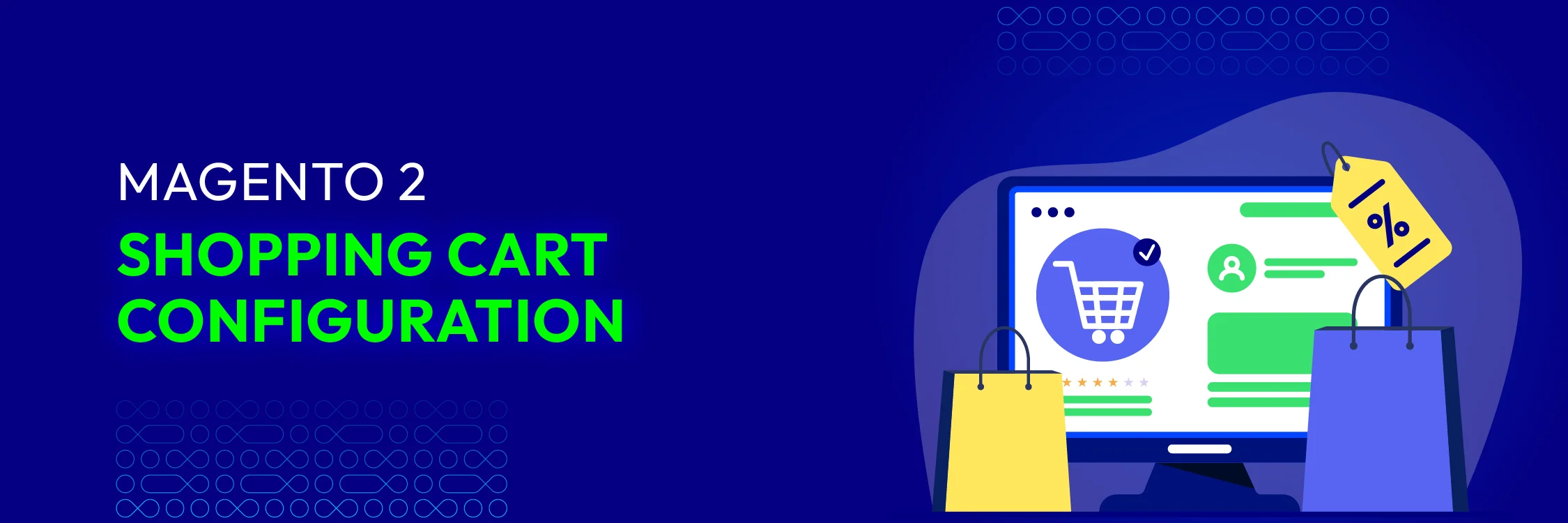
Imagine your Magento 2 shopping cart as the heart of your online store – it’s where the magic of converting browsers into buyers happens. Just like a physical store’s checkout counter, your online cart is the final step before a purchase is finalized. However, unlike customers who buy in a traditional store, those who shop online are only one click away from abandoning their shopping cart and leaving your website. That’s why a well-configured shopping cart is absolutely essential.
Think of it this way: a cluttered, confusing, or slow cart is like a long line at the checkout counter. Customers get frustrated, and impatient, ultimately deciding it’s not worth the hassle. On the other hand, a streamlined, intuitive, and efficient cart makes the checkout process a breeze, encouraging customers to complete their purchases and return for more.

In this guide, we’ll walk you through the key configurations of the Magento 2 shopping cart to ensure it’s user-friendly, optimized, and drives conversions.
Your Magento 2 shopping cart is where customers collect the products they intend to purchase. It’s a critical part of the customer journey, so it needs to be easy to use and understand. Key elements include:
Where Does the Cart Lead? You can determine where customers land after adding an item to their cart. By default, it redirects to the shopping cart page.
Customization Options:
Step 1: Access your Magento 2 admin panel > Stores > Settings > Configuration > Sales > Checkout
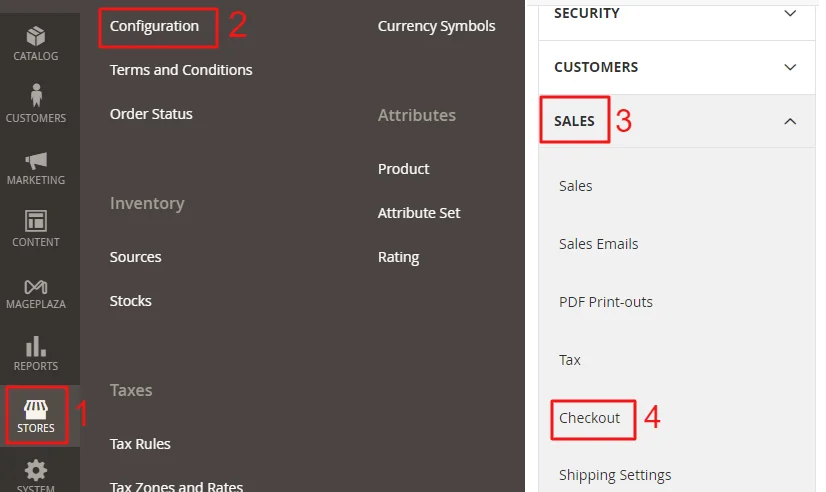
Step 2: Expand the Shopping Cart section
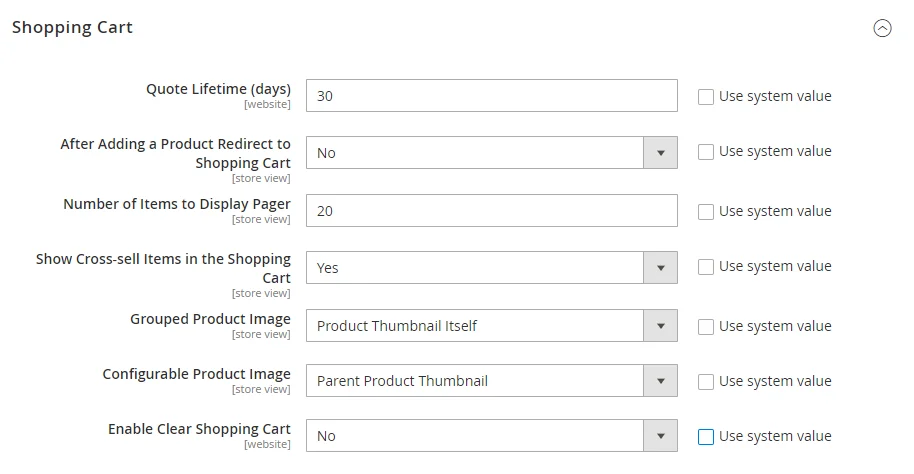 Step 3: Look for the After Adding a Product Redirect to Shopping Cart option. Choose one of the following options:
Step 3: Look for the After Adding a Product Redirect to Shopping Cart option. Choose one of the following options:
Step 4: Click the Save Config button to apply your changes
A Quick View for Busy Shoppers: The mini sidebar cart provides a compact view of items currently in the cart, accessible from any page.
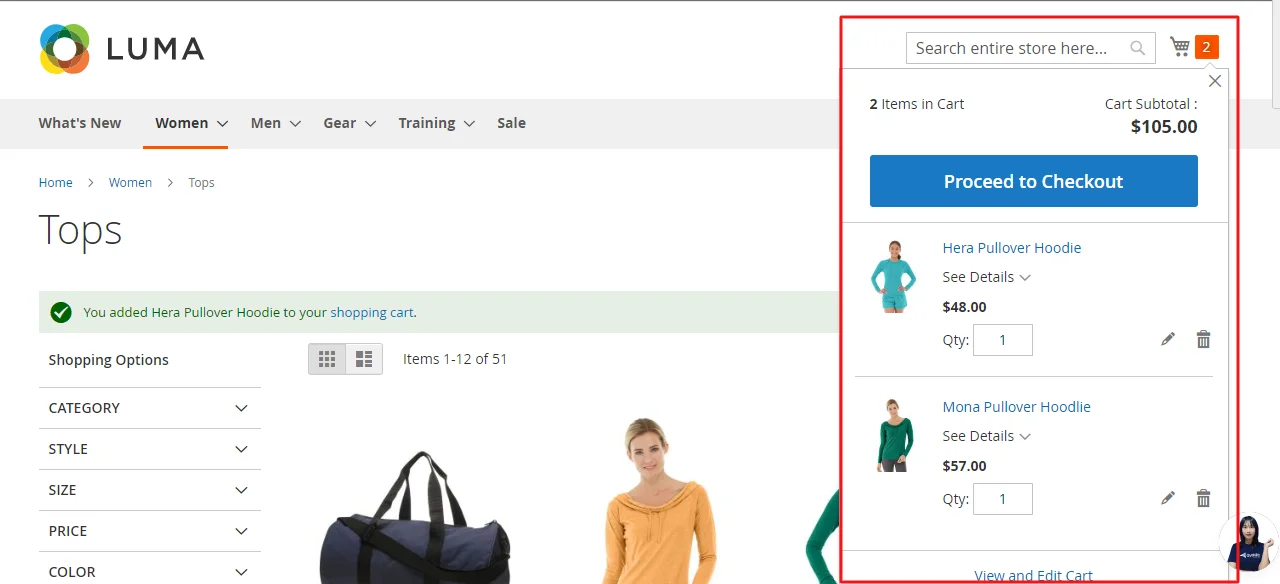
Customizing the Mini Cart:
Step 1: Continue on the Checkout section like in step 1 above when setting the redirect feature. Scroll down and expand the Mini Cart section

Step 2: Configure settings such as:
Step 3: Save Config.
Easy Cart Access: The cart link allows customers to quickly access the contents of their shopping cart from any page.

Customization Options:
Step 1: Scroll up and expand the My Cart Link section above the Mini Cart settings.

Step 2: Choose how the cart summary is displayed in the link:
Step 3: After finishing adjusting, click Save Config.

Gift Options in Magento 2: When customers shop online, they often want to send items as presents. Just like buying a gift conventionally, they may desire gift wrapping or attaching a small wishing card. Magento 2’s Gift Options feature caters to these needs. Here’s how it works:
Step 1: Go to Stores > Settings > Configuration > Sales > Sales > Gift Options.
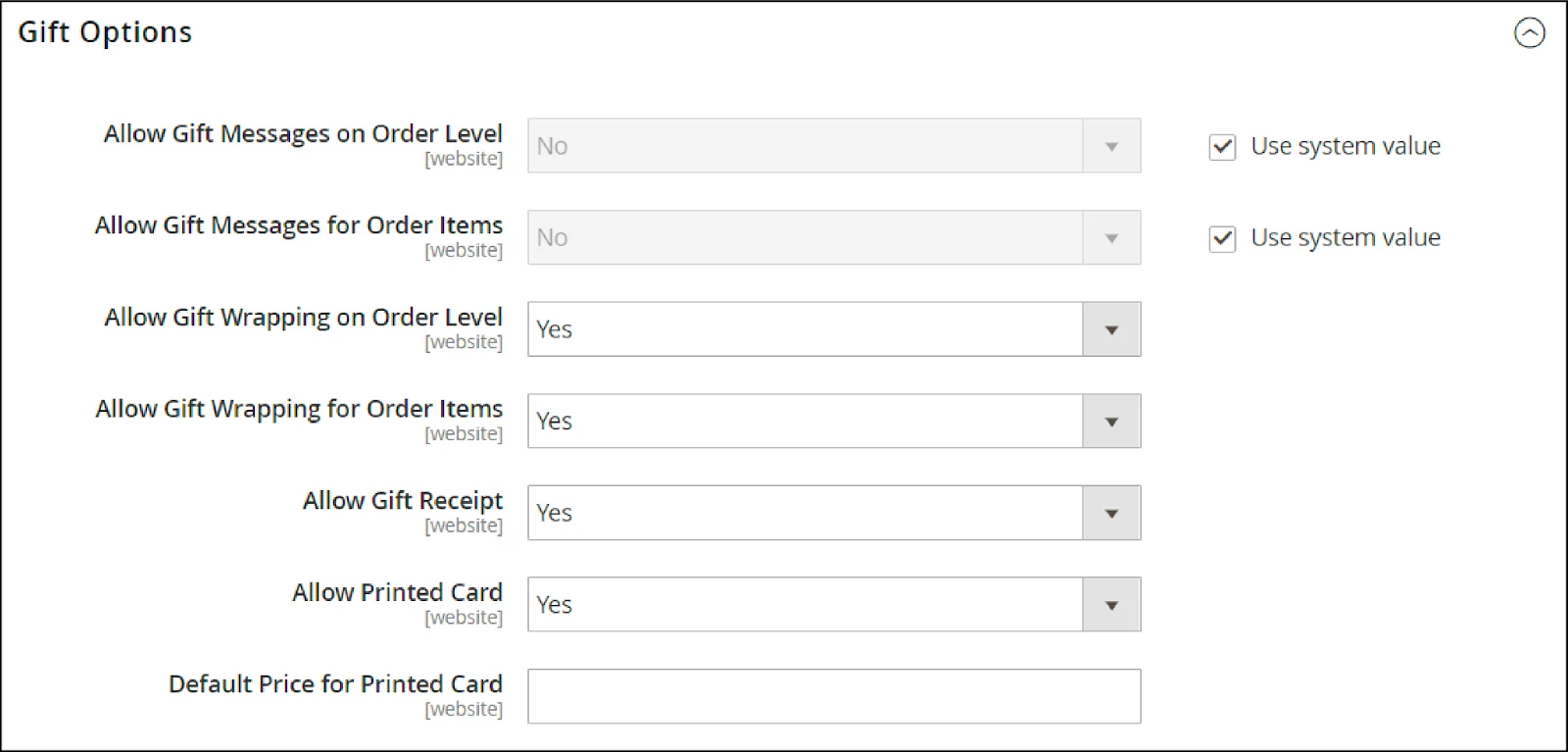
Step 2: To activate gift messaging, Set Allow Gift Messages on Order Level and Allow Gift Messages for Order Items to Yes.
Step 3: Further customize the gift options:
Step 4: Save Config.
Remember the Cart: Enable the persistent shopping cart feature to have a customer’s cart contents saved for a specific timeframe, even if they close their browser. This helps them continue shopping later without losing their selections.
Customization Options:
Step 1: Go to Stores > Settings > Configuration > Customers > Persistent Shopping Cart.
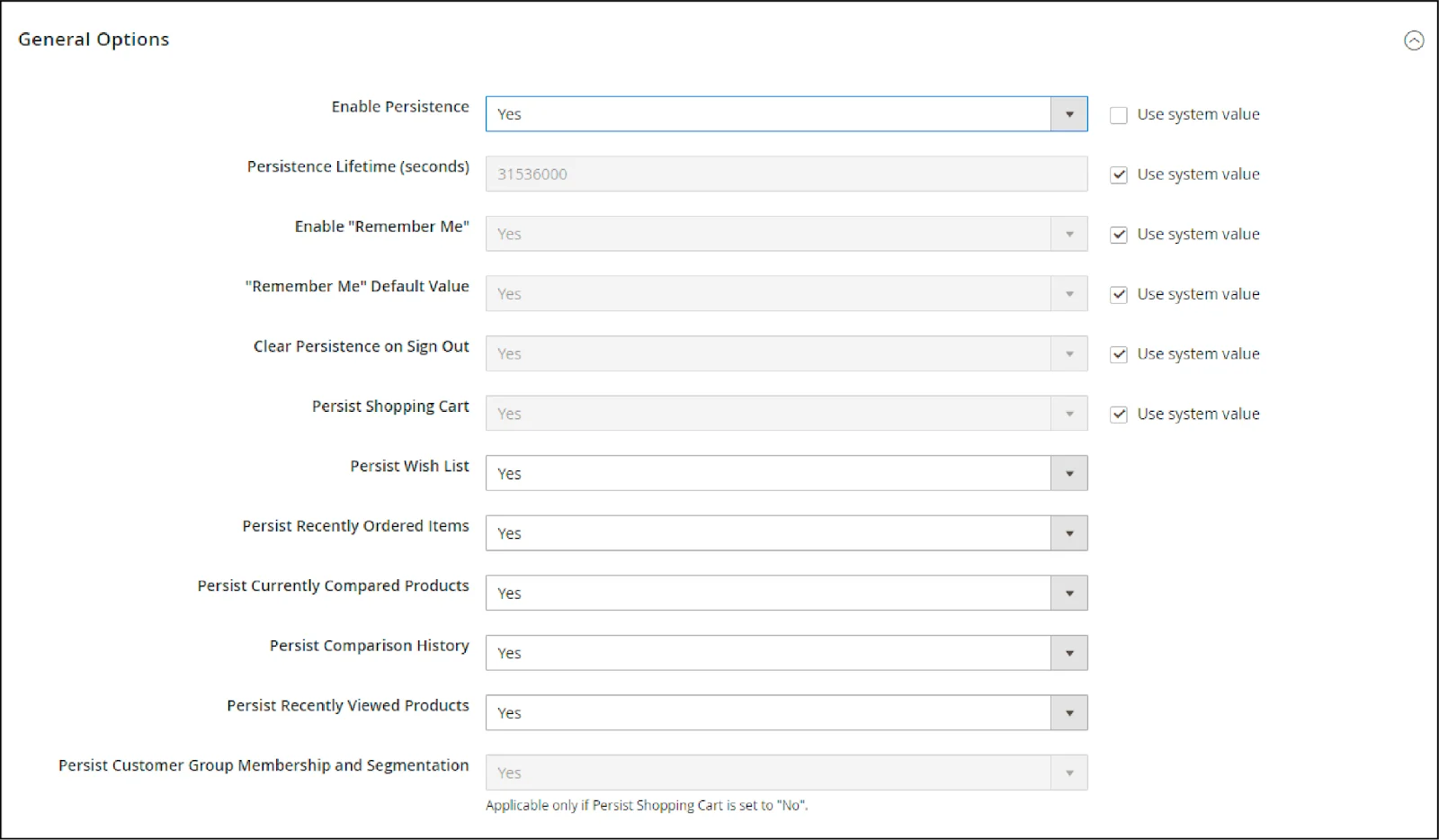
Step 2: Adjust settings:
1, Enable Remember Me:
2, Clear Persistence on Log Out:
3, Persist Shopping Cart:
4, Persist Wish List, Recently Ordered Items, etc.: Set each option to Yes or No to control whether these elements are saved when the session ends.
Step 3: Click Save Config to apply your changes.
Always keep in mind that the evolution of the world of e-commerce is ongoing. Customer expectations shift, new technologies emerge, and your business itself grows and changes. That’s why optimizing your Magento 2 shopping cart isn’t a one-time task but an ongoing process.
Revisit your cart settings regularly. As you add new products, change your marketing strategies, or notice trends in customer behavior, you may need to adjust your configurations. Don’t be afraid to experiment and test different options to see what works best for your specific audience. Lastly, a well-configured shopping cart is just one part of a successful e-commerce strategy. Combine it with compelling product enhancement, clear calls to action, and excellent customer service to create a truly outstanding online store!